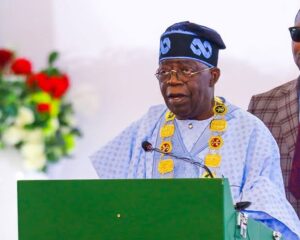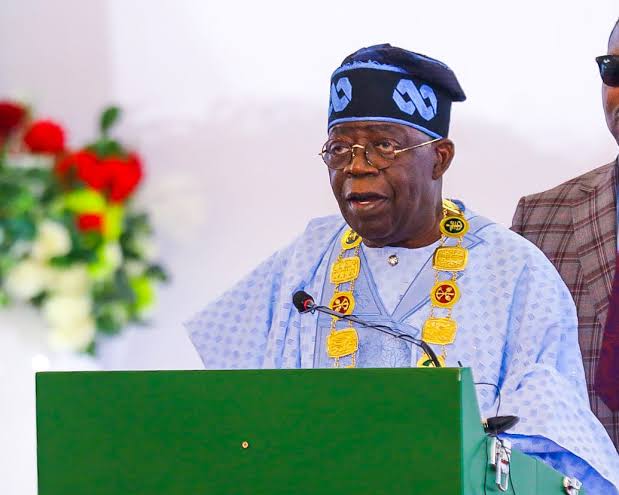Economic Reforms Under President Bola Tinubu: A New Dawn for Nigeria
Titus kyautah
Senior reporter (North)
Adeleke reporters online news
Sunday 13th April, 2025
President Bola Ahmed Tinubu assumed office at a time when Nigeria faced significant economic challenges — from decades of oil-dependent fiscal instability to a structurally weak currency regime, crumbling infrastructure, and unsustainable debt servicing. However, Tinubu’s administration has taken bold, sometimes unpopular, yet economically sound decisions that are gradually realigning the Nigerian economy for sustainable growth and long-term resilience.
1. Removal of Fuel Subsidy & FX Unification
What Was Done:
The Tinubu administration removed the decades-long fuel subsidy regime which was costing Nigeria over $10 billion annually.
The Central Bank under his watch moved to unify the multiple exchange rates, allowing for a market-driven FX regime.
Impact:
Fiscal space has been created. The money previously spent on fuel subsidies is now being channeled toward infrastructure, social welfare, and debt reduction.
The naira has begun to stabilize, with speculative attacks on the currency reducing and foreign investors regaining confidence.
Over time, these reforms will restore macroeconomic stability, improve budget discipline, and encourage foreign direct investment (FDI).
Future Expectations:
Expect greater capital inflows and improved investor confidence as policies stabilize.
Enhanced forex availability and eventual exchange rate stability.
Increased infrastructure investments from savings generated by ending subsidies.
2. Refinery Rehabilitation
What Was Done:
For the first time in over 60 years, a Nigerian government has made meaningful progress in rehabilitating local refineries — especially the Port Harcourt Refinery — reducing reliance on imported fuel.
Impact:
Local refining reduces importation costs, strengthens the naira by lowering forex demand, and creates thousands of jobs directly and indirectly.
With domestic production, fuel prices are beginning to normalize and reduce despite global volatility.
Future Expectations:
Nigeria could become a net exporter of refined petroleum products.
Stable fuel prices, local supply chains growth, and reduced inflationary pressure.
3. Ending Wasteful Debt Practices
What Was Done:
Previous administrations borrowed to fund recurrent expenditure like salaries.
Tinubu is redirecting debt towards productive investments such as infrastructure, agriculture, and energy.
Impact:
This improves debt sustainability, creates assets that can generate revenue, and boosts economic productivity.
Nigeria’s borrowing now has a clear return-on-investment framework, aligning with global best practices.
Future Expectations:
A leaner, more productive public sector.
Improved credit ratings and investor trust.
4. Agricultural Transformation & Food Price Stabilization
What Was Done:
The government launched massive interventions in agriculture — providing access to fertilizers, credit, and mechanization.
There has been a strategic focus on food production, with the goal of achieving food security.
Impact:
Nigeria is seeing early signs of food price declines as local production increases.
Rural incomes are rising, and job creation in agriculture is improving livelihoods.
Future Expectations:
Nigeria may achieve self-sufficiency in staple crops like rice, maize, and cassava.
Expect food exports to rise, leading to diversification of foreign exchange earnings.
5. Social Investment and Economic Inclusion
What Was Done:
The Tinubu government launched palliative measures such as conditional cash transfers and support for SMEs and vulnerable households.
Plans for student loan schemes, mass housing, and youth entrepreneurship support are underway.
Impact:
These interventions have cushioned the initial pain of reforms.
The economy is being democratized to include the informal and youth-driven sectors.
Future Expectations:
Rise in entrepreneurship and employment.
More equitable growth and poverty reduction.
Conclusion: What Nigerians Should Expect
President Tinubu’s economic reforms have laid a solid foundation. Though the path involves short-term sacrifices, the long-term gains are evident. Nigerians should expect:
Stable and stronger naira
Resilient domestic energy market
Reduced cost of living driven by food and fuel price moderation
Better infrastructure from reinvested subsidy savings
Job creation, especially in agriculture and manufacturing
Increased global investor confidence in Nigeria’s economic potential
Final Thought:
Leadership is often about making hard decisions for long-term gains. President Bola Ahmed Tinubu, leveraging his experience as a technocrat and reformist, has begun the hard but necessary work of restructuring Nigeria’s economy. His legacy may very well be the economic renaissance Nigerians have long hoped for.
Would you like this turned into a speech, article, or infographic?



